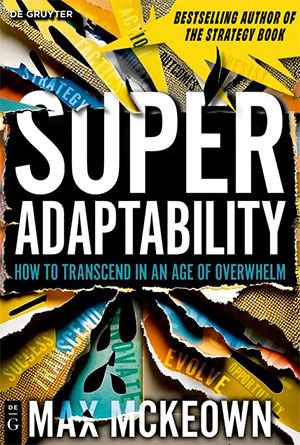
How culturally intelligent leaders make decisions
Culturally intelligent decision-making is the foundation of global leadership. By classifying decisions and refining communication, leaders can ensure their choices work for everyone, everywhere.

Culturally intelligent decision-making is the foundation of global leadership. By classifying decisions and refining communication, leaders can ensure their choices work for everyone, everywhere.

Max Mckeown's heavyweight new book draws from neuroscience, psychology and cultural evolution to develop a practical framework for human adaptability. It might also help you move from paralysis into abundance

Can we truly manage others without first understanding ourselves? This is the question at the heart of a book that takes an unconventional approach to management by drawing on the teachings of the teacher and philosopher, Jiddu Krishnamurti.

How can managers and organisations create an environment in which every voice is genuinely heard, valued and deployed to maximum effect? This book offers some practical ways to meet this challenge.